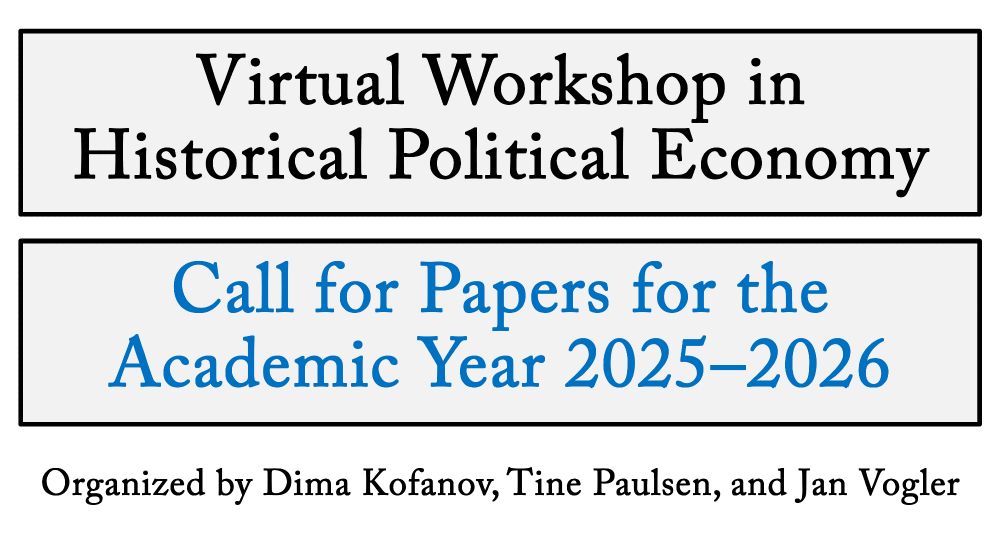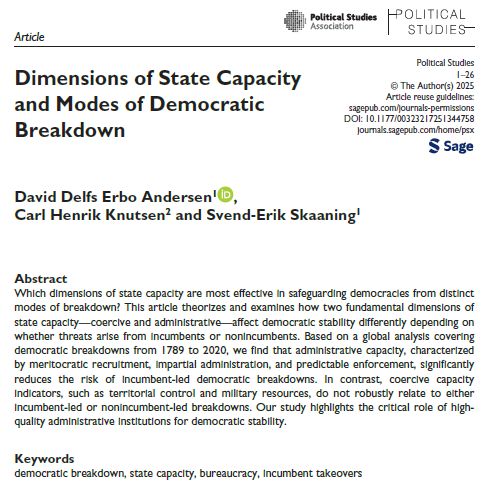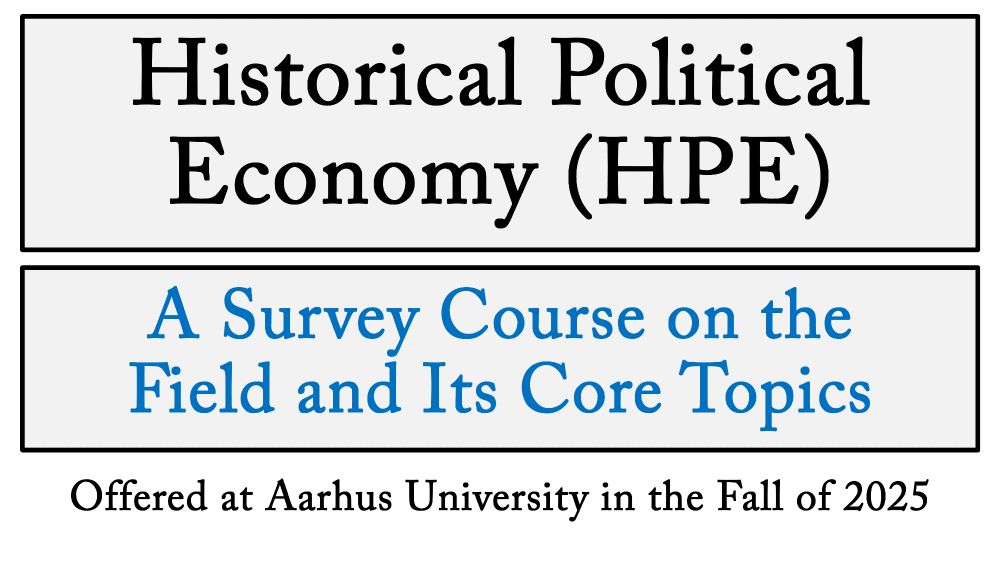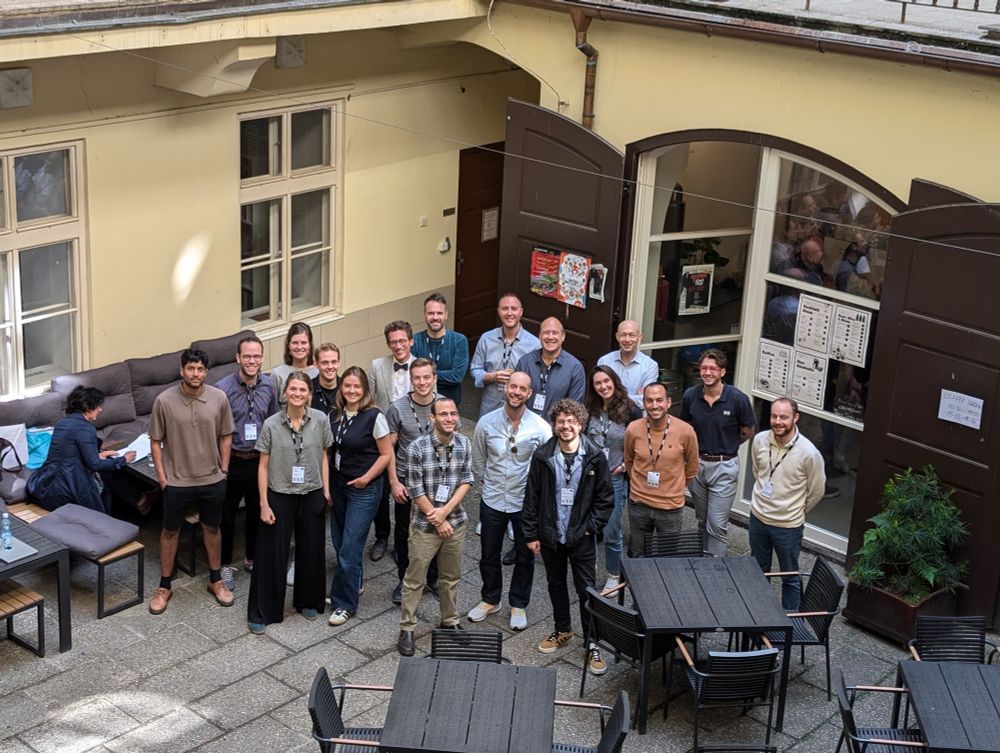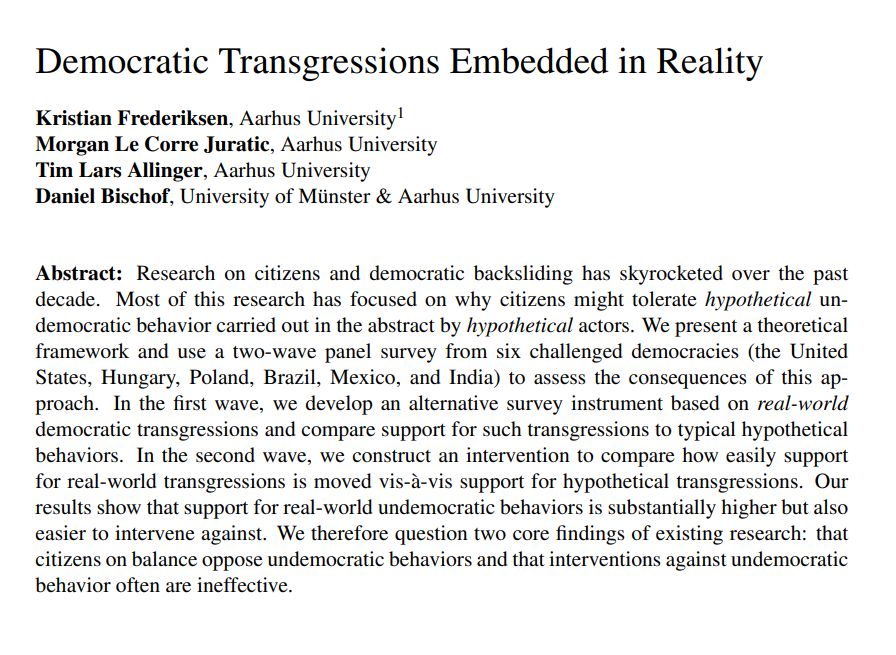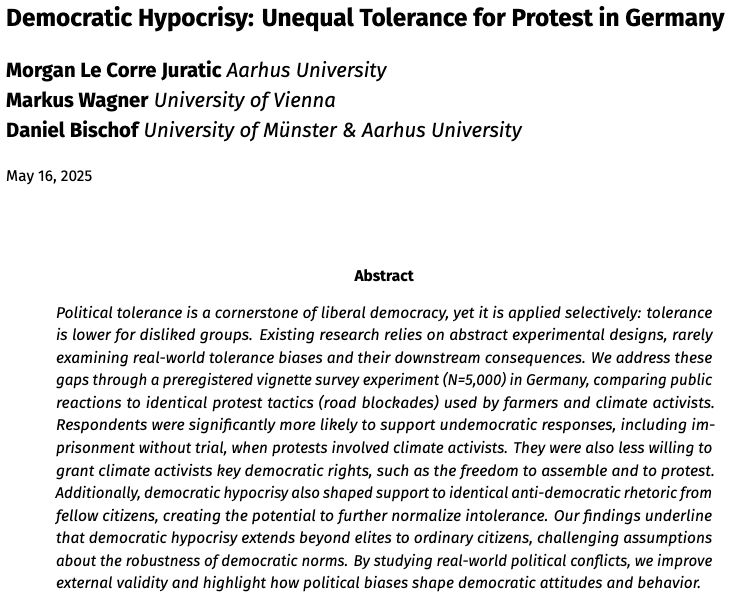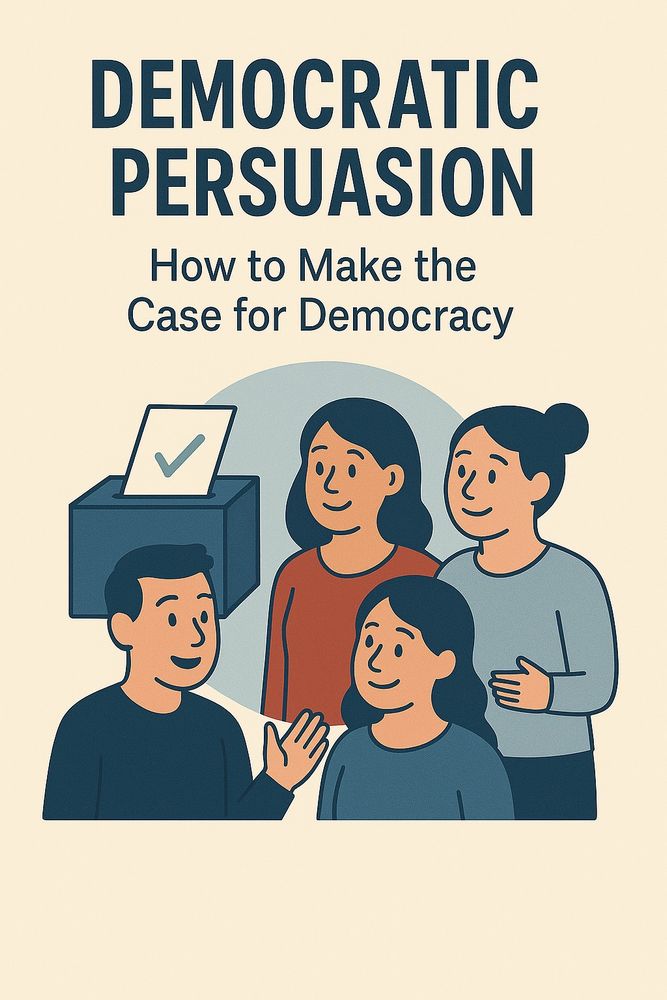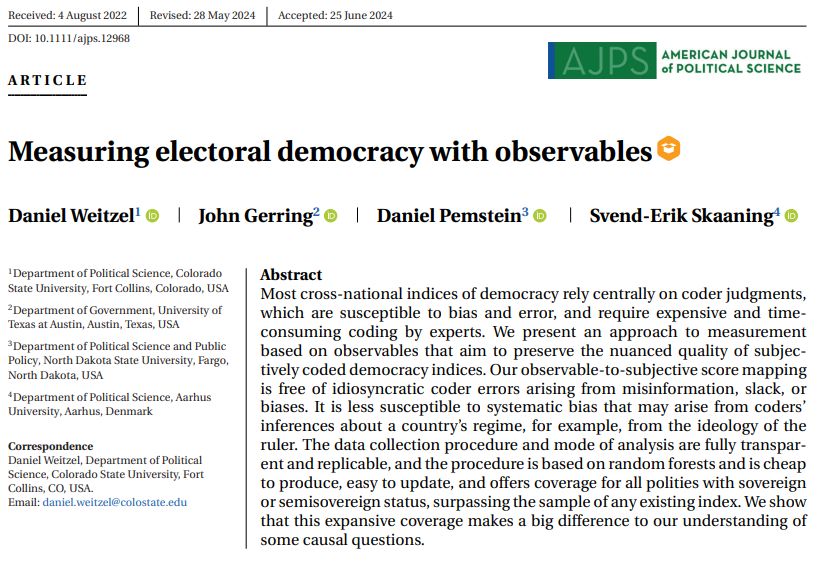Svend-Erik Skaaning
@skaaning.bsky.social
1.4K followers
360 following
27 posts
Professor of political science, Aarhus University
Democratization, autocratization, state capacity, cross-national comparisons, social science history
Posts
Media
Videos
Starter Packs
Reposted by Svend-Erik Skaaning
Lotem Halevy
@lotemhalevy.bsky.social
· Aug 29
Reposted by Svend-Erik Skaaning
Reposted by Svend-Erik Skaaning
Political Studies
@polstudies.bsky.social
· Jul 20
Reposted by Svend-Erik Skaaning
Svend-Erik Skaaning
@skaaning.bsky.social
· Jun 12
Reposted by Svend-Erik Skaaning
Reposted by Svend-Erik Skaaning
Svend-Erik Skaaning
@skaaning.bsky.social
· May 24
Reposted by Svend-Erik Skaaning
Svend-Erik Skaaning
@skaaning.bsky.social
· May 24
Reposted by Svend-Erik Skaaning
Reposted by Svend-Erik Skaaning
Svend-Erik Skaaning
@skaaning.bsky.social
· May 15
Svend-Erik Skaaning
@skaaning.bsky.social
· May 15
Svend-Erik Skaaning
@skaaning.bsky.social
· May 15
Svend-Erik Skaaning
@skaaning.bsky.social
· May 15

A global, historical rule of law index - Zeitschrift für Vergleichende Politikwissenschaft
This article introduces the V-Dem Rule of Law Index, capturing formal-procedural aspects of de facto adherence to rule of law principles. It relies on information from fifteen V-Dem indicators based o...
link.springer.com
Reposted by Svend-Erik Skaaning
Reposted by Svend-Erik Skaaning
Jonas W. Schmid
@jonaswschmid.bsky.social
· Apr 20

Electoral autocracies, hybrid regimes, and multiparty autocracies: same, same but different?
There is a wide range of labels, such as electoral autocracy, hybrid regimes, or multiparty autocracy, and corresponding empirical measures to describe and measure political regimes that combine au...
tinyurl.com
